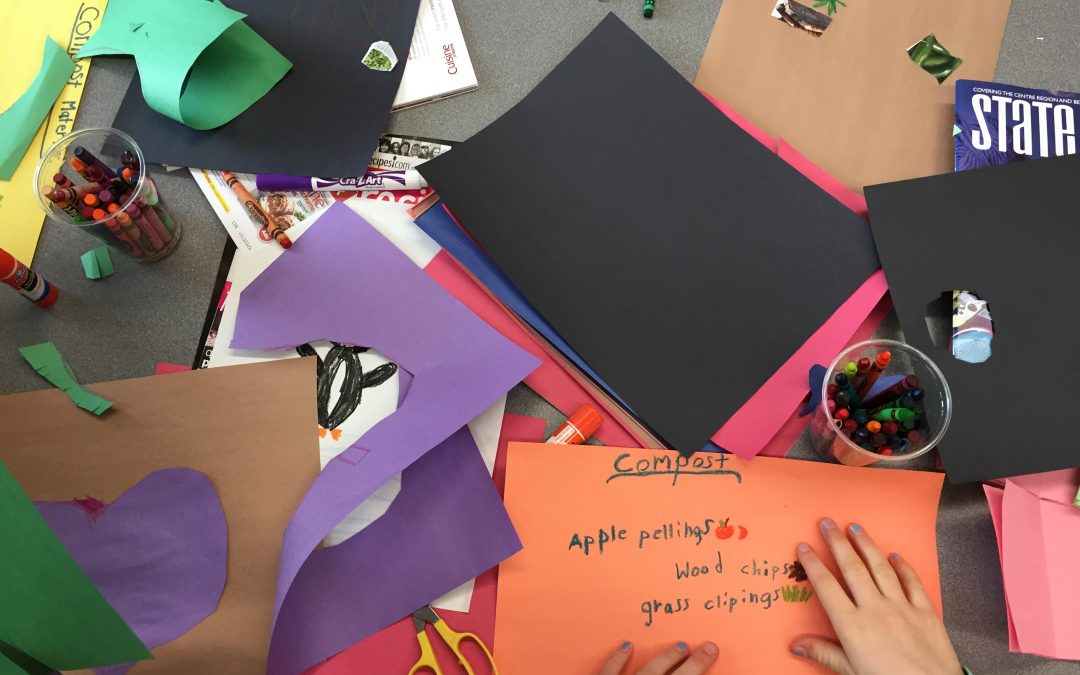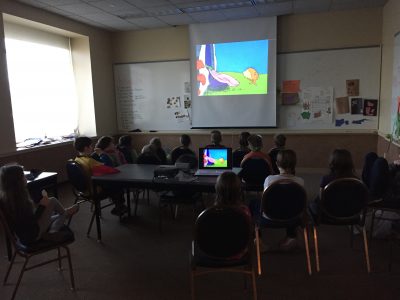By: Olivia Hort
UNIVERSITY PARK– Student Farm at Penn State Club members recently partnered with the region’s sustainable agriculture community by organizing over 30 hours of educational programing about sustainability for elementary school children as part of Pennsylvania Association for Sustainable Agriculture’s (PASA) annual conference, which took place Feb. 2-4 at the Penn Stater Conference Center.
The children in kindergarten through fifth grade had the opportunity to learn about nutrition, protecting the environment and more through games and other activities planned by 25 Student Farm Club volunteers.
“It’s really important to our club that we find ways to support the farmers and many others who are part of our area’s food system. Education about sustainability issues is also an important goal for our organization. Volunteering to run the youth track at the PASA conference is an annual opportunity for us to do just that,” said Mary Lemmon, Student Farm Club member and lead volunteer organizer.
Twenty-five volunteers planned activities for the kids around a different theme each day. Through the educational programming, club members wanted to help kids learn about environmental issues, food nutrition and sustainable ways to reduce their carbon footprint. Club members planned interactive games, created crafts and outlined discussions all centered around the day’s theme.
Thursday’s theme was protecting the environment and kids in kindergarten through fifth grade learned about compost, recycling and watched a portion of the Lorax movie, followed by a discussion led by Student Farm volunteers. Kids talked about the benefits of recycling and composting and how they positively impact the environment. The kids used their artistic talents to create beautiful pictures out of recycled paper and magazines in an activity organized by the volunteers. The activities fostered a conversation about what other items are in everyone’s homes that could be reused or repurposed.
“It was wonderful to hear the kids’ ideas about ways to protect our environment through recycling and composting. They are all so innovative and smart. We hope to educate and continue the conversation about why sustainable practices are important,” said Lemmon.
On Friday, the “seedlings program,” kids in third through fifth grade, learned about sustainable sources of energy as part of the earth, wind and water theme. Volunteers worked with kids to create their own colorful pinwheels to represent a sustainable energy source. After, club members worked with the kids to calculate their carbon footprint, which led a brainstorming session about ways to reduce it.
“That activity was really popular among the kids, and Student Farm volunteers too, because it really put into perspective how little changes such as walking instead of driving or using reusable grocery bags can make a big difference in reducing your carbon footprint,” said Student Farm volunteer Katie Leite.
The theme for Saturday’s activities was the food web for different ecosystems. The youth participated in chain link games, where they learned how all aspects of food chains work. Through the game, kids saw first-hand how different animals interact within different ecosystems and how dependent they are on one another.
“One of my favorite activities was the “Oh Dear!” game, where kids learned how animals react to resource problems and we discussed ways they might solve the problems. The kids came up with some smart, resourceful and creative ideas,” said Leite.
While club members sought to teach the youth about important sustainability topics, by the end of the conference, many discovered that they had also learned from the experience.
“It was such a rewarding and fun experience to work with the kids to learn new things together about sustainability and nutrition. Many of them live on farms, and had important perspectives to share on the interactions between agriculture, food and the environment,” said Lemmon.



